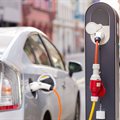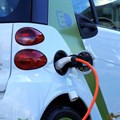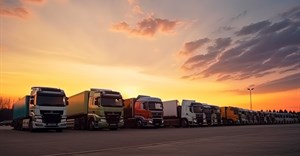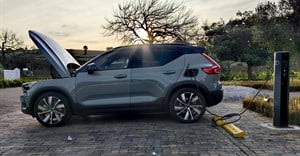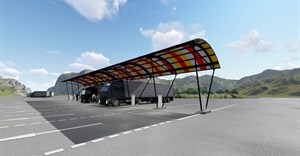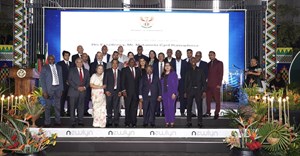Trending
Elections 2024
Jobs
- Procurement Manager - CIPS Cape Town
- Warehouse General Worker George
- Warehouse Team Leader George
- Trainer - Driver Code 14 Cape Town
- Code 14 driver Johannesburg
- Logistics/Stock Intern Centurion
- Driver Johannesburg
Driving the future – EVs are the ultimate opportunity for South Africa
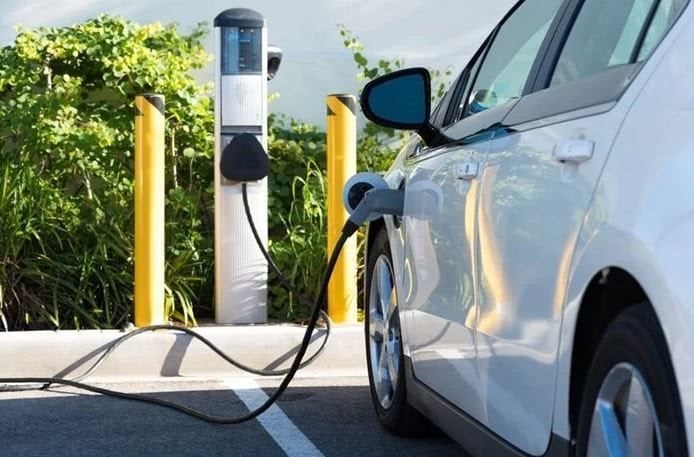
South Africa is also getting on board, with a recent whitepaper by Trade, Industry, and Competition Minister Ebrahim Patel outlining the country’s roadmap to incorporate EVs into the transport mix by 2035. Growing demand presents a significant opportunity for South Africa to leverage economic growth by producing EVs, vehicle components and more, and according to the white paper, the first local production of EVs is set to launch locally by as early as 2026.
With our resources, current production capacity, and upcoming projects, we are strategically poised to play a significant role in the transformation of the global transport sector.
More options, more opportunity
From passenger SUVs like the Honda Prologue to Isuzu’s electric light and medium trucks and Toyota’s Mirai passenger platinum-based fuel cell electric vehicles, which will be showcased at the Paris Olympics in 2024, the number of EVs on the market is rapidly expanding. While there have been some challenges, such as the recall of GWM’s Ora due to an electrical fault, the industry is growing and becoming an increasingly affordable and viable transport option.
However, these vehicles are still manufactured overseas, which increases the purchase cost for South Africans, making it less affordable for locals, which will negatively impact uptake. In addition, our local vehicle manufacturing will become more and more redundant if we do not begin to produce EVs, as we will be unable to export vehicles to Europe, which makes up a significant proportion of our export market.
Adding EV production lines into existing manufacturing facilities will help to address the issue of local cost and will align with Minister Patel’s goal of having EVs make up most of our vehicle exports.
Bringing the value chain home
Aside from the opportunity to manufacture EVs as a whole, there is also significant potential to get involved in the manufacturing of the various components. As a country, we have many of the mineral resources required, which are currently being mined and then sent abroad for manufacturing. If the component manufacturing could be localised, this opens another avenue for export and economic growth, as well as another way of bringing local cost down.
From a sustainability perspective, there is also tremendous opportunity around end-of-life and recycling of components, which is another avenue local businesses could explore.
Local plans are already in motion in some areas, with a manufacturing plant in the Vaal Triangle that will produce fully recyclable batteries. In addition, Ford are extending their current manufacturing facility in Silverton to include a line of plug-in hybrid Ranger vehicles. However, there is an urgent need to accelerate these ventures and take advantage of every opportunity to meet demand and grow our participation in this area and enhance our country’s own transformation, transition, and sustainability goals.
Beyond EVs
While EVs are on every country’s agenda as a more sustainable solution and a way of transitioning away from reliance on fossil fuels, the reality is that they remain problematic.
The range of EVs is limited and charging infrastructure is not yet established. In addition, the cobalt used in the batteries is mined in an environmentally intensive way. As a result, EVs are likely to be a bridge toward other more environmentally-friendly solutions such as fuel cells that leverage green hydrogen.
Looking further into the future, we anticipate the possibility of pioneering technologies such as Vehicle-Integrated Photovoltaic (VIPV) to emerge. VIPV is like building integrated PV and uses special glass with integrated solar PV in areas like the windscreen and panoramic sunroof to charge a battery, or for longer range, to power an electrolyser that will produce green hydrogen to power the vehicle directly.
This type of self-sustainable technology is critical if we are to remove reliance on fossil fuels, because it is the only way for green technology to be applicable and economical for elements like long-distance trucking and international flights.
The reality is that demand for sustainable vehicles is increasing, and we need to get on board because this is where the future is heading. If we do not make the transition and incorporate these technologies into our manufacturing, this sector of the economy will not survive. On the other hand, if we use innovative thinking and African ingenuity there is massive opportunity for growth.







